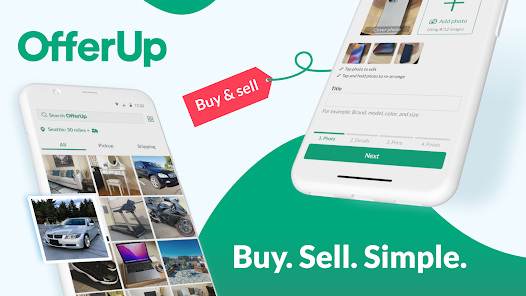
Top 8 OfferUp Alternatives: Best Buy & Sell Apps of 2023 for Thrifty Shoppers
Are you an avid bargain hunter always on the lookout for the best deals and unique finds? If OfferUp has been your go-to app, it’s time to expand your horizon! Discover the top 10 OfferUp alternatives of 2023 that can boost your buying and selling experience on your mobile device. Whether it’s local or nationwide, these apps are essential for thrifty shoppers and savvy sellers alike. Dive into our comprehensive list and never miss the chance to score big on hidden gems and unmissable offers ever again. Say goodbye to overpriced shopping as we guide you through the best budget-friendly buy and sell apps of 2023!
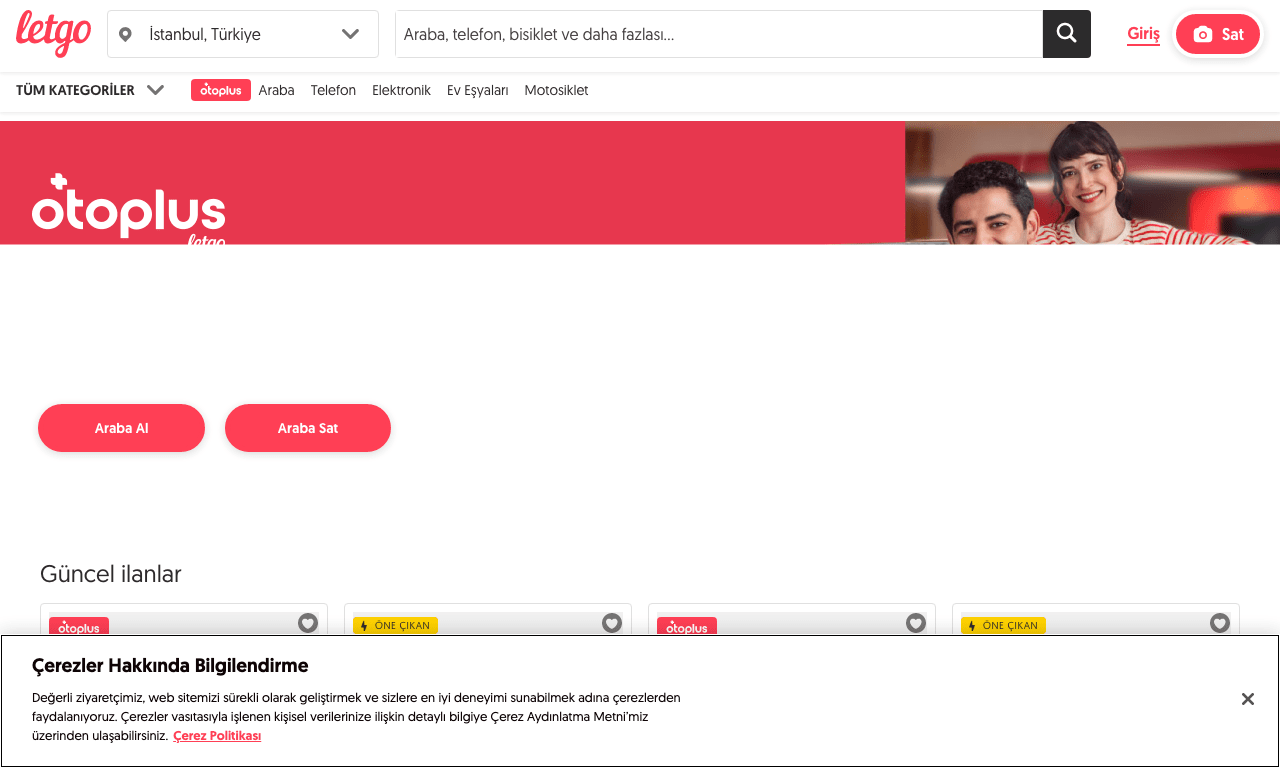
1.
Letgo
4.8
Letgo is a cutting-edge mobile app designed to revolutionize the way users buy and sell items locally. With its user-friendly interface and advanced features, Letgo facilitates seamless transactions and promotes a sense of community among its users by connecting neighbors and friends looking to declutter and discover great deals in their area. Capitalizing on the ever-growing market demand for sustainable shopping and the penchant for second-hand goods, Letgo has garnered popularity as a prime platform for eco-conscious consumers and bargain hunters alike who are looking to give used items a new life. Letgo’s emphasis on safety and security, along with its simple yet dynamic platform, makes it the ultimate destination for users who want to experience a fluid, enjoyable, and safe buying and selling experience.
Pros
- User-friendly interface that makes buying and selling items easy and convenient.
- A wide variety of products available across different categories.
Cons
- The app does not have a process for verifying the authenticity of items, which may lead to scams.
- Sometimes the messaging system can be glitchy and slow to respond.
Conclusion: Letgo is a good platform for buying and selling items, with a wide variety of products available. However, users should exercise caution when conducting transactions and be aware of potential scams.
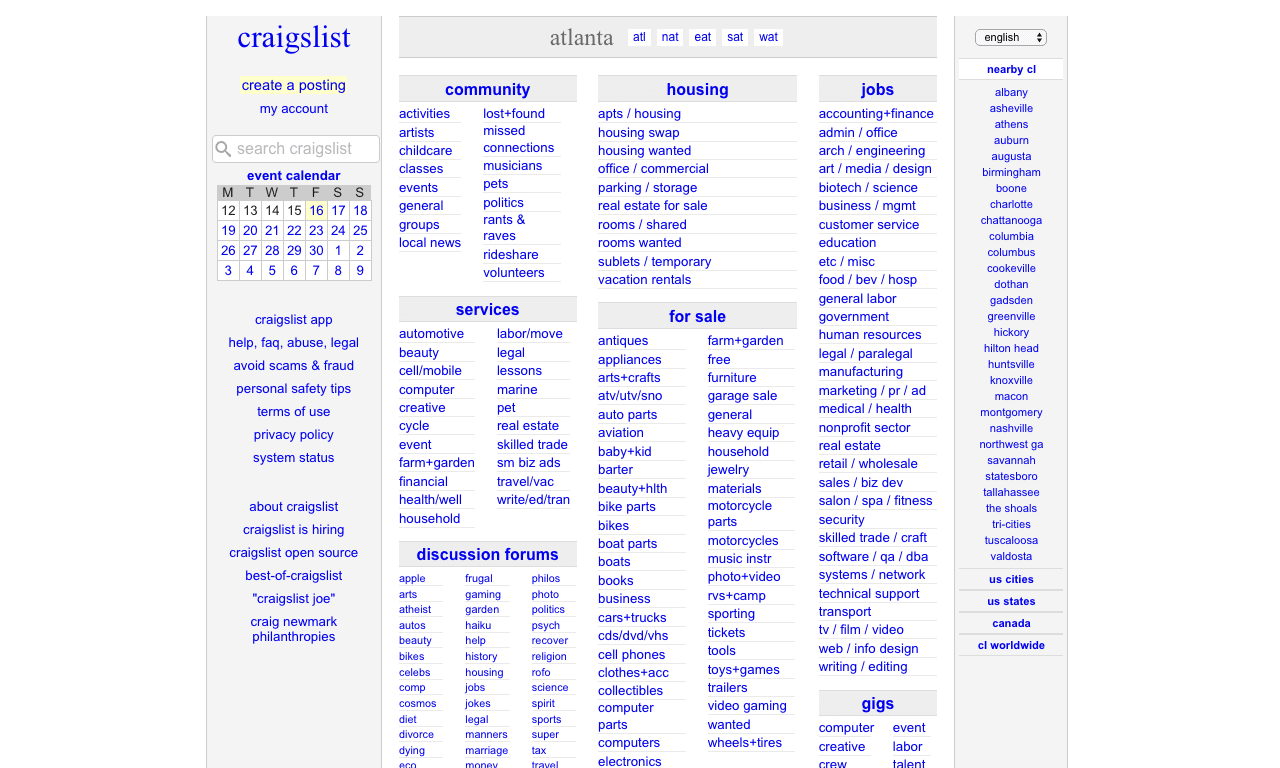
2.
Craigslist
4.6
Craigslist: The Ultimate Local Classifieds App
Discover the convenience and power of Craigslist, the leading local classifieds app that extends its global reach across 70 countries. A preferred platform among users, Craigslist boasts a simple yet effective interface to help individuals and small businesses navigate various categories seamlessly. The app has grown exponentially by facilitating successful transactions, including housing rentals, job opportunities, buying/selling items, and community services. With a vast user base, Craigslist ensures increased visibility for ads and listings, making it an indispensable tool for those seeking a comprehensive and user-friendly marketplace app.
Pros
- Craigslist is a free platform for buying and selling items, which can be advantageous for those on a budget or looking for a good deal.
- The website has a wide range of categories and cities, making it accessible to people in various locations who are looking for different types of items.
Cons
- Craigslist has a reputation for being a somewhat risky platform, as scams and frauds have been known to occur. It’s important to take precautions and be aware of potential red flags when using the website.
- While Craigslist can be a convenient way to buy and sell items, it does require some effort from the user in terms of posting ads, communicating with potential buyers/sellers, and arranging transactions.
Conclusion: Overall, Craigslist can be a useful tool for those looking to buy or sell items, particularly if they are trying to save money or access a wide range of goods. However, it’s important to be cautious and aware of the potential risks associated with using the platform.
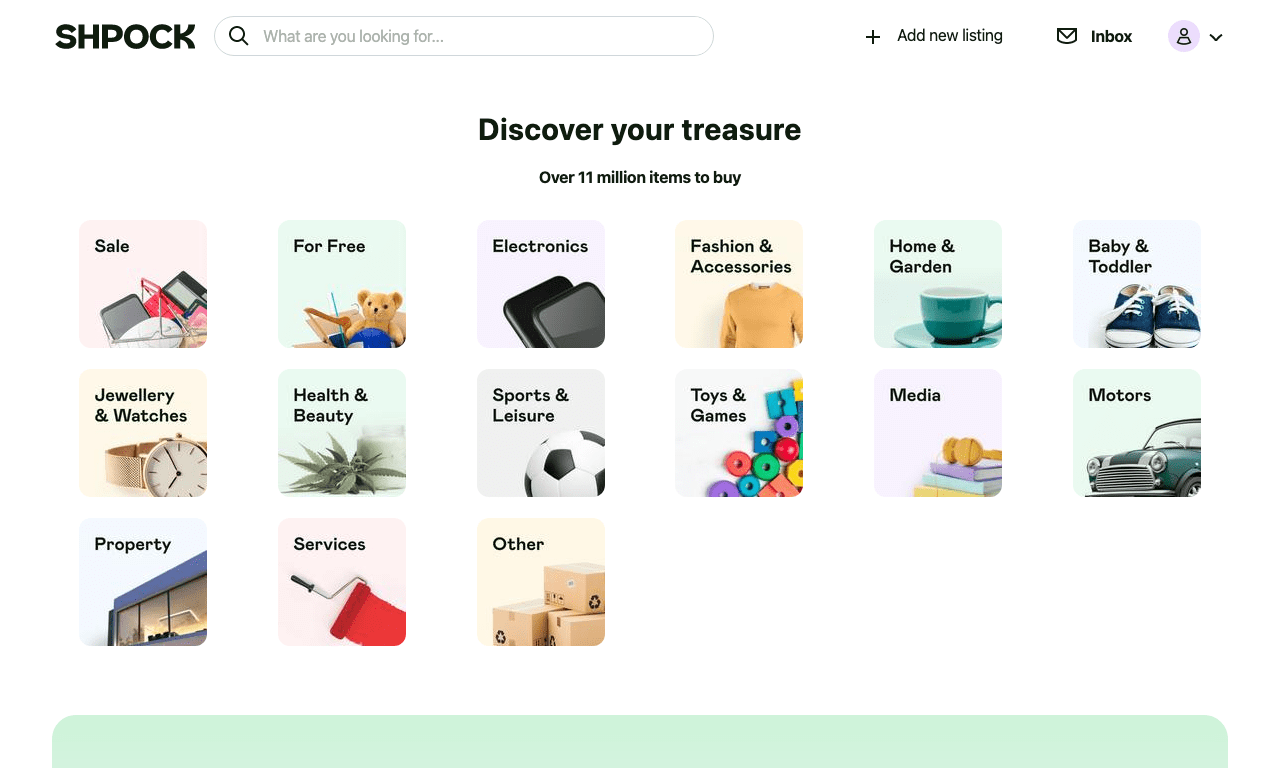
3.
Shpock
4.3
Discover the world of Shpock, an innovative mobile app that revolutionizes the way you buy and sell second-hand items locally. Immerse yourself in the vast marketplace, wherein thousands of deals await for you to explore daily. With a focus on sustainability, Shpock offers an effortless buying and selling experience, making it an attractive platform for environmentally-conscious consumers. Access an array of categories, including fashion, electronics, and home essentials, ensuring that your personalized needs are met every time.-Dive into the Shpock community and witness a seamless, eco-friendly shopping adventure like never before.
Pros
- Shpock provides a user-friendly interface for buying and selling second-hand items.
- The app allows people to buy and sell items locally, reducing the environmental impact of transporting goods.
Cons
- Shpock does not guarantee the quality or authenticity of items sold on the platform.
- The app charges a fee for certain services, such as promoting listings.
Conclusion: Overall, Shpock can be a useful tool for those looking to buy or sell used items locally, but buyers should exercise caution when purchasing items and be aware of any fees associated with using the app.
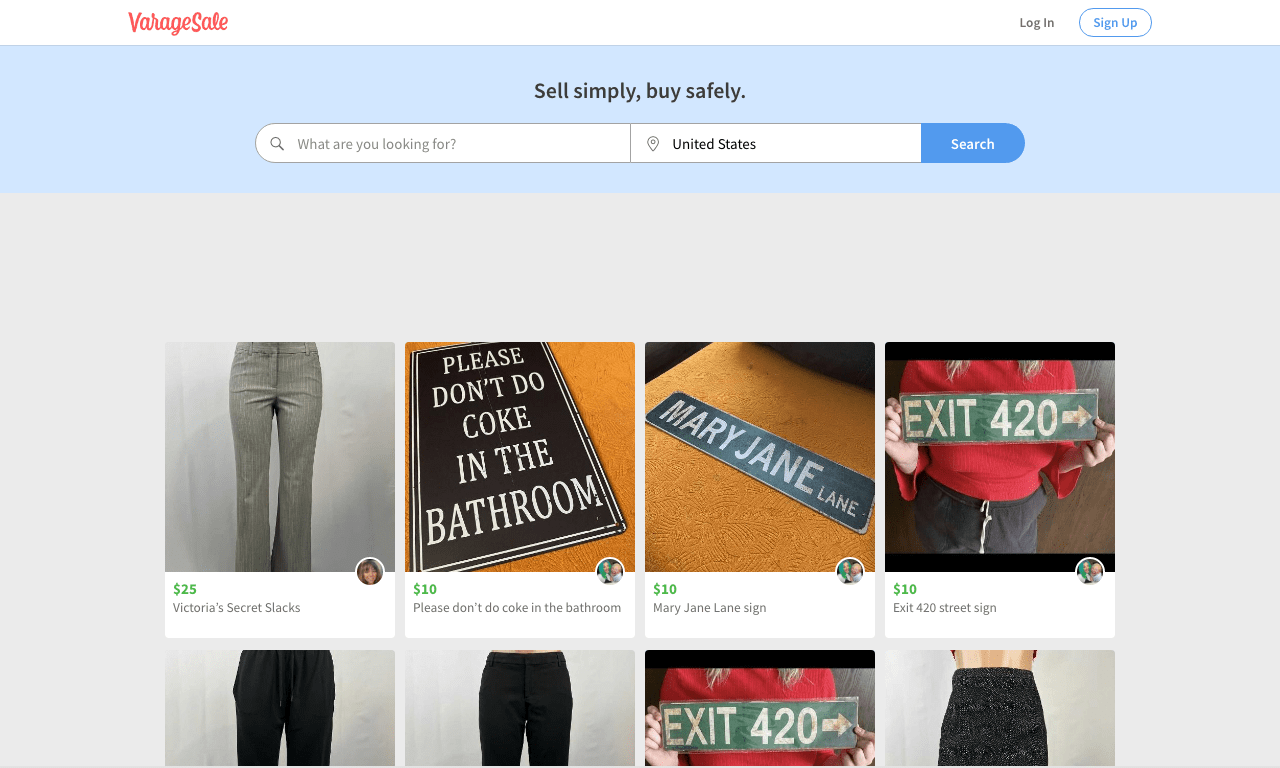
4.
VarageSale
4.1
VarageSale is a user-friendly shopping app that allows communities to engage in buying, selling, and trading their belongings with ease. By focusing on local transactions, the platform ensures secure connections and fosters neighborhood interactions. Easily browse through a wide range of items from clothing to electronics with the added comfort of knowing the sellers within your area. VarageSale is verified by community administrators to maintain a reliable and safe marketplace for all users. Enjoy cost-effective deals on pre-owned goods with this innovative community shopping app.
Pros
- VarageSale provides a safe and trusted environment for buying and selling items locally, reducing the risks associated with traditional peer-to-peer marketplaces like Craigslist.
- The app uses location-based services to connect buyers with sellers in their community, creating a more efficient and convenient shopping experience.
Cons
- There may be limited availability of items in certain geographical areas, making it difficult to find what you’re looking for.
- The verification process may be time-consuming and limit the number of potential buyers and sellers on the app.
Conclusion: Overall, VarageSale is a useful app for those looking to buy and sell items locally with added safety and convenience measures. However, the limited availability of items and verification process may be a drawback for some users.
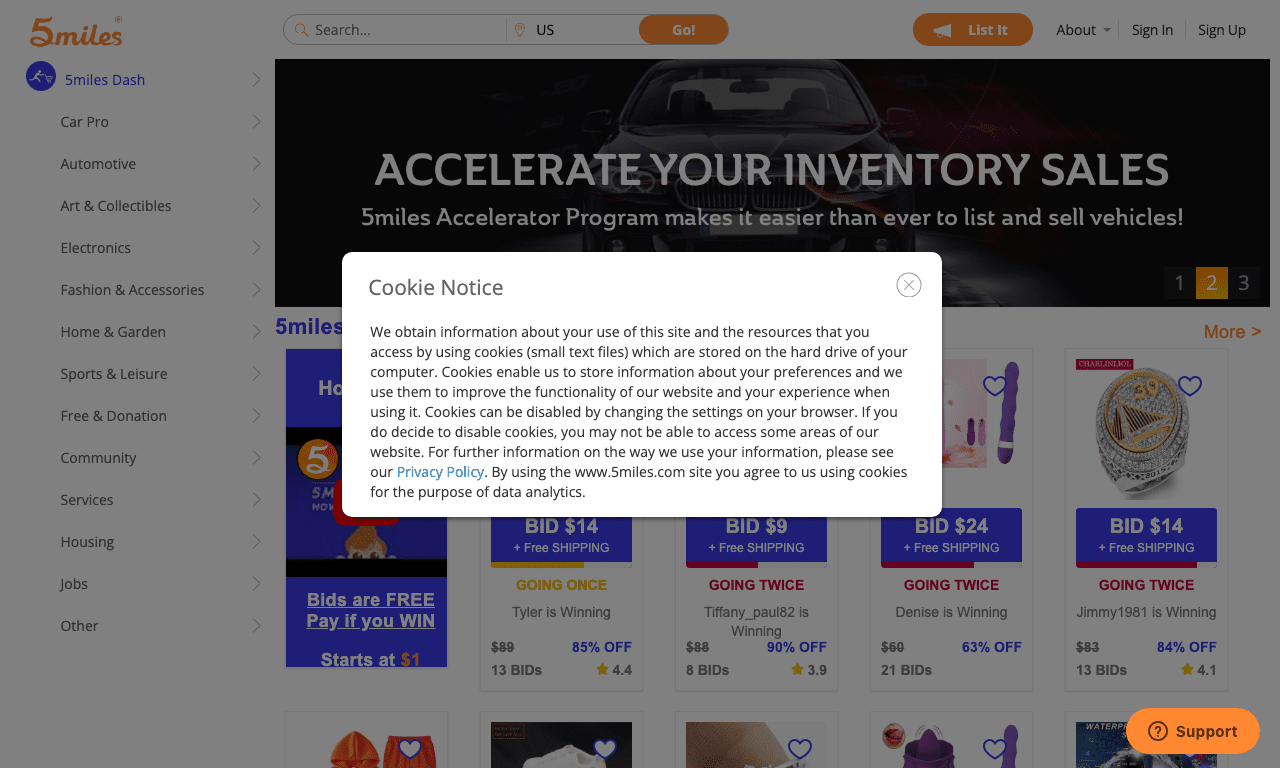
5.
5miles
3.9
5miles is a cutting-edge mobile app designed to revolutionize the way users buy, sell, and connect with their local community. Focused on delivering a user-friendly experience, 5miles boasts an intuitive interface, advanced search filters, and a secure platform for transactions. With this innovative app, users can discover top deals on a wide range of items, from electronics and furniture to cars and housing. Additionally, 5miles fosters a sense of community by facilitating direct communication between buyers and sellers, promoting local businesses, and even supporting community events. Experience the ultimate digital marketplace with the 5miles app and redefine your shopping experience.
Pros
- miles offers a wide variety of products for sale from local sellers, allowing users to find unique and affordable items.
- The app has a user-friendly interface and includes features such as messaging and seller ratings to make transactions safer and more efficient.
Cons
- Due to its focus on local sellers, the app may not have as many products available in certain areas compared to other online marketplaces.
- There have been some reports of scams and fraudulent postings on 5miles, so users need to exercise caution and use common sense when making transactions.
Conclusion: Overall, 5miles can be a great tool for finding bargains and connecting with local sellers. However, users should be aware of the potential risks and take precautions to protect themselves when using the app.
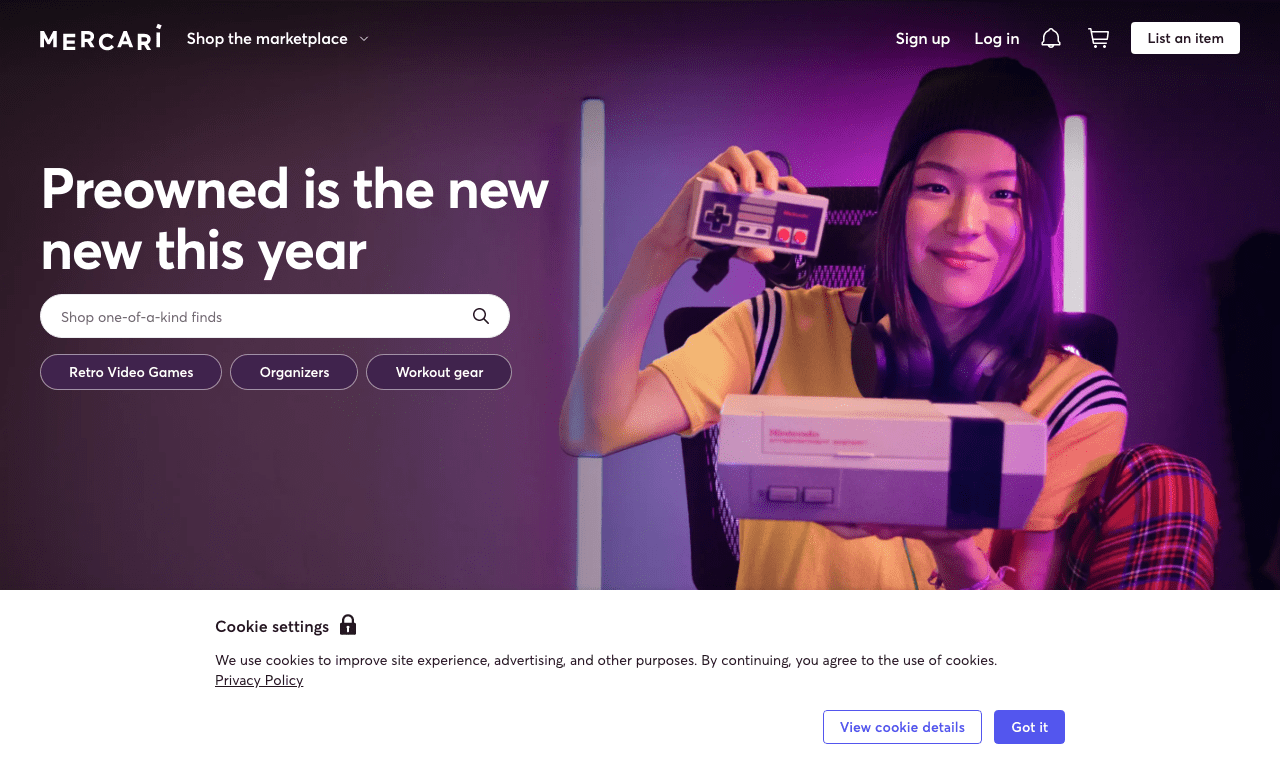
6.
Mercari
3.8
Mercari is a popular mobile marketplace app that offers a seamless and user-friendly platform for buying and selling a wide range of items, from clothing and electronics to home goods and collectibles. Featuring a simple listing process, buyer and seller communication tools, secure payment options, and an extensive product catalog, Mercari empowers users to discover, connect, and shop with ease. With its commitment to safety and trust, backed by buyer protection and seller ratings, it has established itself as a leader in the ever-growing online shopping industry. Experience the ultimate ease of modern-day retail through the Mercari app.
Pros
- Easy to use: Mercari has a user-friendly interface, making it easy for anyone to buy or sell items on the platform.
- Wide range of products: Because Mercari allows people to sell almost anything, users can find unique and rare items that may not be available on other platforms.
Cons
- High shipping costs: Mercari does not have a fixed shipping rate, and the cost varies depending on the size and weight of the package. This can make it expensive for buyers to purchase items.
- Limited protection for sellers: While Mercari offers protection for buyers, it does not offer the same level of protection for sellers. This can make it risky for sellers to use the platform.
Conclusion: Overall, Mercari is a decent platform for buying and selling items online. However, buyers should be aware of the high shipping costs, and sellers should be cautious about the limited protection offered by the platform.

7.
Poshmark
3.4
Poshmark is a top-rated shopping app that allows users to buy and sell fashion items, including clothing, shoes, and accessories, in a convenient and user-friendly environment. With its extensive selection of brands, sizes, and styles, Poshmark offers an unparalleled shopping experience for all fashion enthusiasts. Users can enjoy personalized recommendations based on preferences, streamlined category browsing, and exceptional deals on new and pre-loved items. Virtual closets and social features enable users to connect with fellow fashion lovers, share style inspiration, and build a loyal customer base. Poshmark’s secure transactions and dedicated support ensure a smooth and reliable platform for both buyers and sellers. Experience the ultimate fashion marketplace, and discover unique treasures with Poshmark.
Pros
- Poshmark allows users to easily buy and sell clothing and accessories from their mobile devices, making it convenient for both buyers and sellers.
- The app offers a wide variety of items from both well-known and independent brands, and users can also negotiate prices with sellers.
Cons
- Poshmark takes a 20% cut of each sale made on the app, which may be a deterrent for some sellers.
- Some users have reported difficulty with navigating the app and finding specific items, particularly if they are looking for something in a specific size or color.
Conclusion: Poshmark can be a great option for those looking to buy or sell secondhand fashion items on their mobile device, but it may not be the best fit for everyone. The platform’s convenience and variety of items are major advantages, but the app’s fees and occasional navigational difficulties may be drawbacks for some users.
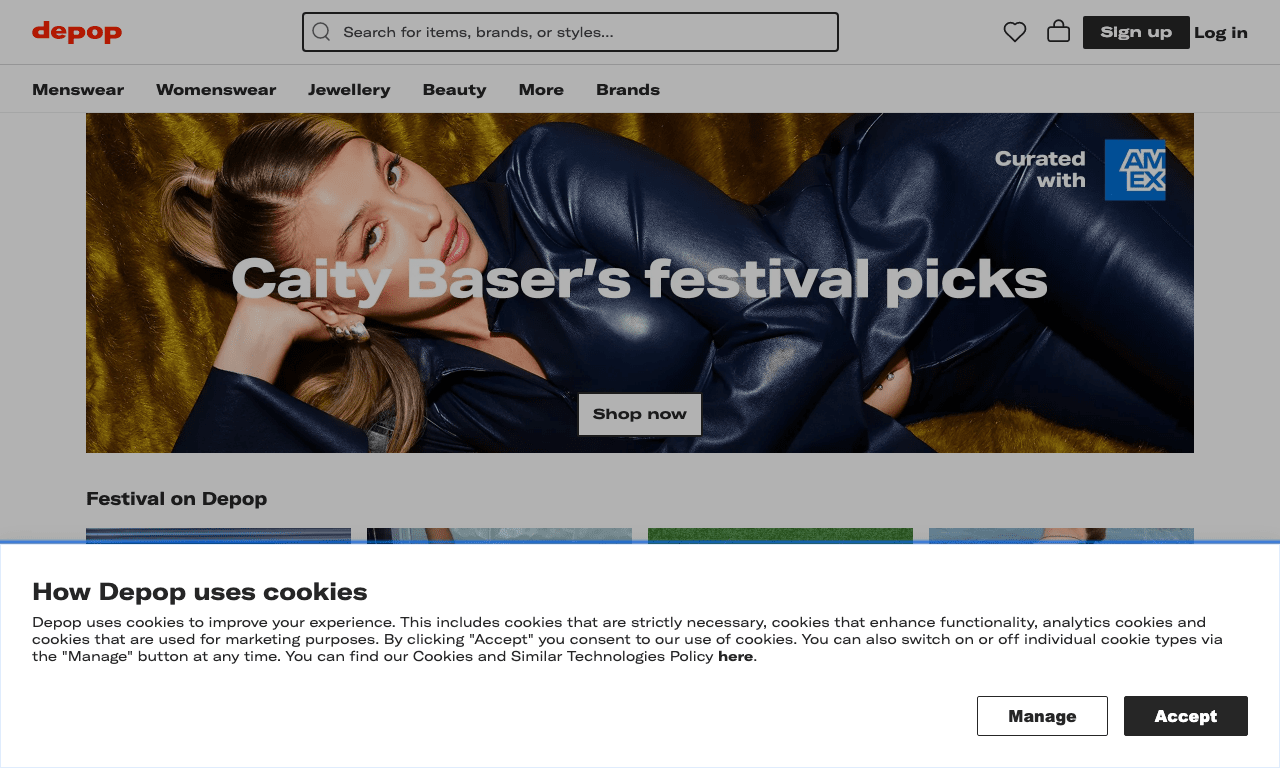
8.
Depop
3.2
Depop is a cutting-edge mobile app that seamlessly combines social networking and e-commerce, providing a fun and engaging platform for users to buy, sell, and discover unique fashion items. By fostering a community of like-minded trendsetters, Depop has established itself as a go-to destination for finding stylish and vintage clothing, accessories, and more from its diverse network of users. Its user-friendly interface, personalized recommendations, and powerful search capabilities make it easier than ever to find that perfect piece, while an array of in-app messaging and social features ensures a vibrant and connected shopping experience. Redefining the way we think about online retail, Depop is revolutionizing the fashion arena one post at a time.
Pros
- Depop offers a unique marketplace for buying and selling secondhand or vintage fashion items, making it a great platform for eco-conscious consumers.
- The app is user-friendly, with a simple and intuitive interface, making it easy to navigate and use.
Cons
- Depop takes a 10% commission on all sales, which can add up for sellers who are trying to make a profit.
- Some buyers and sellers have reported issues with fraud and scams on the app, which can be a risk for those using it.
Conclusion: Depop is a great option for those looking to buy or sell secondhand or vintage fashion items in a user-friendly and unique platform. However, sellers should be aware of the commission they will have to pay, and buyers and sellers should be cautious of potential fraud or scams on the app.
Frequently Asked Questions
What are the top 10 OfferUp alternatives for buying and selling items in 2023?
The top 10 OfferUp alternatives include Letgo, Craigslist, Shpock, VarageSale, 5miles, Mercari, Facebook, Poshmark, and Depop.
Are these OfferUp alternative apps safe for buying and selling items?
While all these apps have safety measures in place, users should always exercise caution by verifying the authenticity of items, never sharing personal information, and using the app’s built-in communication and payment systems to conduct transactions.
Do these OfferUp alternatives charge fees for listing or selling items?
Some apps, such as Poshmark and Depop, charge a commission on sales, while others, like Letgo and VarageSale, may have fees for certain services such as promoting listings. It is important to review each app’s fee structure before using it.
Can I use these OfferUp alternative apps to buy and sell items nationwide or internationally?
Most of these apps focus on local transactions within a specific country, although some, like Craigslist and Facebook, have a more extensive reach. It is essential to check the app’s geographical coverage before using it.
Are these OfferUp alternatives suitable for buying and selling various types of items, such as clothing and electronics?
Yes, the apps mentioned in the article cover a wide range of items and categories, including clothing, electronics, home goods, and more.
Do these OfferUp alternative apps work on both Android and iOS devices?
Most of the apps mentioned in the article are available for both Android and iOS devices. Always check the app’s compatibility with your device before downloading it.
How can I avoid scams and fraud when using OfferUp alternatives?
To avoid scams and fraud, never share personal information, use the app’s built-in communication and payment systems, meet in public places for local transactions, and verify the authenticity of items before purchasing. Always trust your instincts and report any suspicious activity to the app’s support team.
Are these OfferUp alternative apps suitable for eco-conscious shoppers?
Yes, many of these apps, such as Shpock and Depop, emphasize sustainability and promote the buying and selling of second-hand items, making them ideal for eco-conscious shoppers.
Can I negotiate prices with sellers on these OfferUp alternative apps?
Some apps, such as Poshmark and Mercari, allow users to negotiate prices with sellers. Be sure to read the app’s guidelines on price negotiation before using this feature.
Which OfferUp alternative apps have the most extensive user base and item selection?
While it is challenging to determine the exact user base and item selection for each app, larger platforms like Craigslist and Facebook generally have more extensive user bases and a wide variety of items available for purchase.
What is Offerup and how does it work?
OfferUp is an online marketplace that provides a platform for people to buy and sell items locally. It operates in a manner similar to classifieds, allowing users to list items for sale and connect directly with potential buyers. Users can navigate through categories, search for specific items, and communicate directly with sellers to negotiate prices and pick-up or delivery options. Both buyers and sellers can leave feedback for each other after the transaction to build their reputation within the platform.
How can I list my items for sale on Offerup?
To list an item for sale on Offerup, you need to upload photos of the item, provide a detailed description, set a price, and list a location for the item. Once you’ve entered this information, you can publish the listing for potential buyers to view. Throughout the process, it’s essential to provide accurate and honest information to facilitate transparent transactions and maintain good buyer-seller relationships.
Is it safe to use Offerup?
Offerup prioritizes user safety by implementing several security measures. It has a robust rating and review system that allows users to gauge the trustworthiness of buyers and sellers. However, users are also encouraged to follow safety guidelines when meeting with potential buyers or sellers, such as meeting in public places during daylight hours and verifying the item’s condition before making a payment.
Does Offerup charge a fee for selling items?
Listing items on Offerup is free; however, if you choose to ship your item to the buyer, Offerup does charge a service fee depending on the value of the item sold. For sales of items valued at $500 or less, the fee is 12.9% of the sales price, or a minimum of $1.99 if the sale price is below $15. For items valued over $500, the fee is 5% of the sales price with a maximum fee of $50. The fees cover costs such as payment processing, customer support, fraud protection, and labels for shipped items.
What type of items can I sell on Offerup?
You can sell a wide range of items on Offerup, including furniture, clothing, electronics, sporting goods, and even cars. However, there are certain prohibited items like drugs, weapons, counterfeit goods, and live animals. It’s important to review Offerup’s prohibited items policy before listing an item for sale.
Can I ship items to buyers on Offerup?
Yes, Offerup allows sellers to ship items to buyers. Once a buyer purchases your item, you’ll receive a prepaid shipping label from Offerup to use. You have to package the item securely and drop it off at a designated shipping location within five days. Keep in mind that a service fee applies for items sold with shipping, and it will be deducted from your earnings from the sale.
What if the buyer or seller doesn’t show up for the meeting?
If a buyer or seller fails to show up at the arranged meeting place, communication is key. Reach out to them via Offerup’s messaging feature to see if there’s been a misunderstanding or delay. If the other party remains unresponsive or consistently unreliable, it’s best to consider alternative buyers or sellers. It’s also beneficial to report no-shows to Offerup’s customer service to maintain the platform’s trust and safety.
How do payments work on Offerup?
For in-person transactions, buyers typically pay with cash. For shipped items, buyers pay through the app using a debit card, major credit card, or Apply Pay. Once a transaction is complete, Offerup transfers the funds to your account, minus any applicable service fees. The payment should be available within five business days after delivery confirmation.
Can I return an item purchased on Offerup?
If a buyer purchases an item for local pickup, Offerup’s policy doesn’t support returns or refunds, unless the item doesn’t match its description or is defective. For shipped items, buyers have two days after delivery to report any issues and request a return or refund. After this period, all sales are considered final.
How can I report a problem or a fraudulent behavior on Offerup?
If you encounter a problem or suspect fraudulent behavior, you can report it directly to Offerup’s customer service through the app or the Help Center. You should provide any pertinent details and evidence to help the team investigate your issues thoroughly. It’s important to report any suspicious activities to maintain a safe and trustworthy community on Offerup.
 ping.fm
ping.fm 